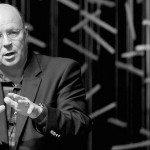My name is Fr. Tony Bleything, I’m an Alcoholic and a Drug Addict. Okay, so I don’t say Fr. Tony Bleything at the 3 to 4 AA meetings I go to per week, but I do identify each time as an alcoholic and an addict. I’m sure I sound like a broken record at our church but I truly believe that if the church took note of the work of Alcoholics Anonymous, they would surely learn a great deal about making disciples.
For the past few months I have been reflecting on what I can learn about discipleship from Alcoholics Anonymous. I’m still learning a great deal about discipleship and about my addiction but here are few insights I’ve gleaned from AA that I believe has the potential to inform us as we work at forming followers of Jesus.
Discipleship Will Not Progress Without the Assumption That We Are Completely Powerless
For any recovery to truly move forward, I had to grapple with my absolute powerlessness over my disease. The first step of AA is: “We admitted we were powerless over our addiction – that our lives had become unmanageable” I had to come to terms with the truth that addiction is “cunning, baffling, powerful”. A common phrase heard in AA meetings throughout the world is this; “my best thinking is the reason that I’m here.” As an addict I have to come to terms with my ‘stinking thinking’. My best laid plans will always fail me. Addicts can’t just stop using or drinking, we need to have a complete operating system overhaul.
At every meeting I am reminded of how AA works. The first statement read in ‘How it works’ is the following:
Rarely have we seen a person fail who has thoroughly followed our path. Those who do not recover are people who cannot or will not completely give themselves to this simple program
In a letter to her brother, speaking about her commission to write about her mystical visions, St. Teresa of Avila wrote the following; “I trust in our Lord, that…those who are to enter the house are chosen souls, capable of being very great examples of humility, penance, and prayer.”
The beginning of my recovery started with humility, this is also true of discipleship to Jesus. If we are to walk the narrow path disciples must be able to admit that they are powerless to save themselves. Powerlessness is the beginning of any journey towards spiritual transformation. The first step in AA is complete surrender, the first step of discipleship is complete surrender
This, unfortunately has not been my experience in the church. Instead of asking God to give us an entirely new operating system because ours is corrupt, we ask him if there is an “app for that”. We’d rather have an extension that we could add to our broken system. We’d rather have Jesus and keep our broken thinking. We want to be disciples who, in our own strength show God that we are worthy of the task. Most Christians, myself included, can probably resonate with this statement that is heard at every AA meeting; “At this we balked…we thought we could find an easier softer way”. There is no easier softer way, powerlessness is the key to unlock the power and grace of God in our life.
Discipleship is Not about Me and God, It’s about Me-In-Community with God
David Augsburger, writing about anabaptist spiritual formation in his work “Dissident Discipleship”, lists two common approaches to spiritual formation, monopolar and bipolar. In our culture of pop spirituality, we practice what Augsburger calls monopolar spirituality. Monopolar spirituality is all about me. It advocates for self-discovery, a connectedness to nature, and a sensitivity to humanity. Whatever we want to use to make those things happen are fair game because the goal is a greater understanding of self. This is not Christian Spiritual formation, this is self-help therapy. Or using Christian Smith’s term, Moral Therapeutic Deism.
Most Christians, both Catholic and Protestant, practice what Augsberger calls Bipolar spiritual formation. Bipolar spirituality is a formation that consists of both a personal subjective experience and also an objective experience of connecting with a transcendent God. In our rugged individualistic world, it becomes about me and God. Other people are important only because they create opportunities for me to grow in my relationship with God. Loving neighbor is not essential to my spiritual formation. Augsberger and AA think this type of spiritual formation will malform us rather than transform us.
One of first things an Alcoholic reads in recovery is “Bill’s Story”. This is the personal testimony of Bill Wilson (who remained anonymous until his death in ’71). Bill was one of the founders of Alcoholics Anonymous. In his story he writes the following; “I soon found that when all other measures failed, work with another alcoholic would save the day.”
A third approach to spiritual formation is what Augsberger calls tripolar spiritual formation. My formation is not about me and God, rather it is about Me-In-Community with God. This is a spirituality embodied by people like Jean Vanier (founder of L’Arche), Francis of Asissi, Mother Theresa, Shane Claiborne, and many others. This view of formation believes that we are unable to be fully human without our relationship to other humans. This is the case with AA. We can’t stay sober without the help of other brothers and sisters who are also working the program. This is one of the key ideas of the AA philosophy, solidarity.
When I entered rehab nearly 15 years ago, I was with a group of people I would have deemed less than human. They were the people that were from the wrong side of town, people I considered less than human, people I would NEVER have spent time with. Yet, they were the people who forced me to get honest with myself, they spoke truth, they challenged, they encouraged, and they loved. I struggled with drugs and alcohol but my healing was so much more than that. I became more human as I opened myself up to others who were not like me and I learned how to love and be loved by those that society saw as unlovable.
Imagine how this might change our discipleship if we actually believed that we couldn’t do it alone. Imagine if we believed that rigorous honesty with our fellow brothers and sisters on the path to the kingdom actually led to our healing and not our condemnation. For some reason, we are shocked when we discover that those around us sin!
Discipleship is the Process of Acting Myself into New Ways of Thinking not Thinking myself into New Ways of Acting
 Addicts know that on their best day, their addiction completely impaired them and prohibited them from making good choices. We in recovery don’t rely on our best thinking because we know that it doesn’t get us anywhere good. Though it is not explicitly said, AA creates a culture that believes that the addict will only find sobriety when they begin to act themselves into new ways of thinking. That’s why one of the most common things you here is; “Keep coming back, it works if you work it so work it your worth it.” There is a belief that if one is to give his or herself over entirely to the 12 steps and the principles of unity, service, and recovery, then eventually they will one day realize that their thinking has changed and that it changed without them worrying about it.
Addicts know that on their best day, their addiction completely impaired them and prohibited them from making good choices. We in recovery don’t rely on our best thinking because we know that it doesn’t get us anywhere good. Though it is not explicitly said, AA creates a culture that believes that the addict will only find sobriety when they begin to act themselves into new ways of thinking. That’s why one of the most common things you here is; “Keep coming back, it works if you work it so work it your worth it.” There is a belief that if one is to give his or herself over entirely to the 12 steps and the principles of unity, service, and recovery, then eventually they will one day realize that their thinking has changed and that it changed without them worrying about it.
When I read the words of Jesus, I don’t hear him say come and study with me but I do hear him say come and follow me. He tells me that the path, which we walk on, is narrow. The disciples learned how to be like Jesus by walking with Jesus, by doing what Jesus did in the way that Jesus did it. Discipleship is a practice, a rhythm, a way of living in the world. We will never think our way into generosity, but we will become generous as we give. We will never think our way into being peacemakers but we will become people of reconciliation as we place ourselves in the middle of conflict.
Discipleship Happens When I Tether Myself To Another As an Act of Self Giving Love
In AA, meetings with other drunks are crucial, but there is another crucial and more intimate part of AA. It is the relationship between the sponsor and the sponsee. The sponsor is someone that is often pursued by a sponsee but at times it is someone who feels a connection to another who has just come into the program. My sponsor asks that I check in once a day, that I meet with him once a week to ‘work the steps’, and that I attend at least one meeting with him per week. He is my guide in my road to recovery. He is available to me whenever I need him. If I’m struggling, I can call him.
My sponsor, has tethered himself to me. He is walking with me daily because he has a genuine concern for my health and flourishing. But it is not just for my sake that he walks with me, he too is able to grow because of this relationship. Built into the community is the assumption that we will serve others, because we know that if we are not getting outside of our own heads we are in danger of falling back into the broken, self-centered thinking that landed us in recovery in the first place. My sponsor is a very busy man, with a family, multiple business ventures, boards, spiritual committments, and other relationships. Yet, he finds time to talk with me daily, to ask how I’m doing, to make sure I’m doing my work in sobriety.
Discipleship is not just a weekly meeting, it’s not just an accountability group, it’s not just Bible study. Discipleship is one brother or sister who has progressed along spiritual lines coming along side another who has not journeyed as far. It’s about a relationship that takes priority over other relationships. It’s a relationship based on accessibility of one person to another for the sake of both our flourishing. Discipleship is about joining in with another as they suffer towards the Kingdom.
We can’t do it alone, we can’t follow Jesus without a company of friends, but when we share that yoke with another, it can and will become light work.
















